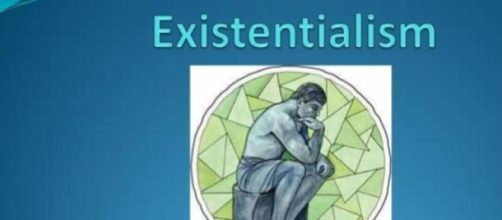In previous articles on Blasting News, I have linked existentialism to other discussions; in particular, my articles about cruises & existentialism, and the Charlie Hebdo massacre & existentialism. In this article, I want to address existentialism directly.
The first point to make is that existentialism, as a philosophical movement, has passed. We are, to some extent, living in "post-existential" times. Talk of existentialism has moved to talk of postmodernism. Existentialism was a philosophy of its time - late 19th Century to mid 20th Century. It was a response to those times, the society of those times, and the issues of that period. However, that is not to say we can dismiss existentialism. Existentialism deals with perennial concerns for humanity. But, it could only have arose at a particular time; and because it was formulated in a specific time period some aspects of the existential movement have lost their shocking newness. In some ways, we have come to terms with existentialism, and are living in existential times.
In the first part of this article, I want to explain why existentialism came about; why it could have only come about at the time it did, and therefore, what bits of it are a bit dated.
Existentialism was a response to The Enlightenment and the scientific reasoning of that period. Possibly, most significantly, it was a response to Darwin's "discovery" that man was not a product of God, but a product of evolution. In short, this lead to atheism becoming acceptable. Nietzsche declared "God is Dead". he was not only proclaiming his own belief that God was dead, but speaking for the times. Prior to Nietzsche, philosophers were reluctant to express their views on atheism if they had a sceptical view on God e.g.
Hume did not proclaim himself an atheist, but probably was. However, more importantly, philosophers like Hume would not have been talking for the people if they had declared themselves to be atheists.
Existentialism grew from the view that God was dead. Therefore, if Life had Meaning it was not God's reason, plan or purpose. Thus, existentialism confronted the question of, what is the meaning of living? What is the point in carrying on existing? Existentialism was, therefore, a product of its time. It came after Darwin, when belief in God was truly being shaken. The early part of the 20th Century was the only time existentialism could have arisen. It arose, because the question of meaning and purpose arose because God had become absent from that.
However, it is precisely because existentialism was a movement of its time that we are now living in post-existential times. We have come to terms with the idea that "God is Dead". The shock of existentialism, and the idea that meaning is not linked to God, has passed, and society has moved on. In our new postmodern, post-existential times the worry about how we live without a concept of God seems rather quaint, and from a bygone era. This is why the movement of existentialism is no longer relevant in the same way.
However, existentialism still asks the same perennial question: how do we find meaning? Possibly, our postmodern culture has saved us from asking ourselves this. We need life to be occupied 24/7. We need to worry about work, money etc, because these worries distract us from existential worry. Only, if we find living difficult and troublesome, do we forget to ask, what is the point of living? The awkwardness of living provides an escape from the awareness of the futility of it all. The tedium of living needs to be horrible so that we don't have to confront the horror that, in the end, it may all be pointless anyway.

